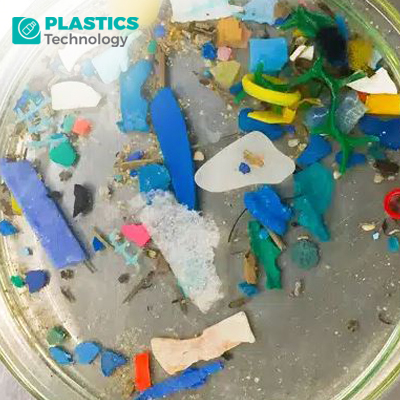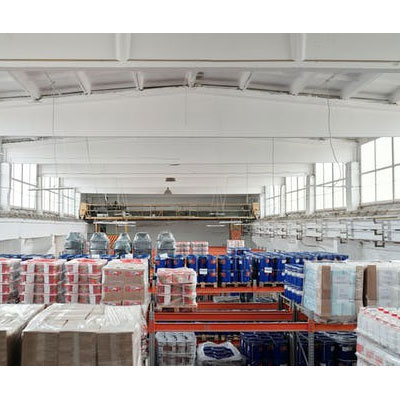What Role Does Bioplastics Certification Play in Promoting Sustainability?

Introduction:
Bioplastics have emerged as a promising alternative to traditional plastics, offering eco-friendly solutions to reduce environmental impact. However, ensuring the sustainability of bioplastics requires more than just their production. Certification plays a crucial role in verifying their eco-credentials and promoting sustainable practices. In this article, we delve into the significance of bioplastics certification in driving environmental sustainability.
Why Bioplastics Certification Matters?
Bioplastics certification plays a critical role in promoting sustainability through several key aspects. Firstly, certification processes involve thorough environmental impact assessments that evaluate the entire lifecycle of bioplastics, starting from raw material sourcing to disposal. This scrutiny ensures that bioplastics maintain a minimal ecological footprint, contributing positively to environmental conservation efforts. Secondly, certification instills consumer confidence by providing a seal of approval for certified bioplastics. This seal signifies that the products meet stringent eco-friendly criteria, thereby fostering trust and confidence among consumers regarding their environmental attributes.
Thirdly, certification is often a prerequisite for market access in many industries and markets. Mandated certification opens doors to wider market acceptance and opportunities, driving the adoption of sustainable practices in manufacturing and consumption.
Moreover, certifications ensure regulatory compliance, ensuring that bioplastics adhere to environmental regulations and standards. This fosters responsible manufacturing and usage practices, aligning with global sustainability goals.
Lastly, certification promotes transparency by providing detailed information about bioplastics' composition, recyclability, and biodegradability. This transparency aids informed decision-making among stakeholders, including businesses, consumers, and policymakers, further advancing sustainability initiatives.
Types of Bioplastics Certification:
Bioplastics certification encompasses various types of certifications that are crucial for promoting sustainability.
Biodegradability certification validates the ability of bioplastics to break down into natural compounds over time, ensuring their eco-friendly disposal and reducing environmental impact.
Renewable resource certification certifies the use of renewable resources in bioplastics production, highlighting sustainability and reducing reliance on fossil fuels, thereby contributing to environmental conservation.
Compostability certification ensures that bioplastics are compatible with composting processes, promoting circular economy principles by diverting waste from landfills and facilitating organic waste recycling. Carbon footprint certification quantifies and certifies the carbon footprint of bioplastics, encouraging the adoption of low-carbon alternatives and mitigating climate change impacts, aligning with global environmental goals.
Quality standards certification encompasses certifications for product quality, safety, and performance, enhancing market competitiveness and consumer acceptance. These certifications collectively play a vital role in driving sustainable practices in bioplastics production and usage, fostering environmental responsibility, consumer trust, and market competitiveness.
Benefits of Bioplastics Certification:
Bioplastics certification offers a range of benefits that contribute significantly to environmental sustainability and business success. Firstly, certified bioplastics contribute to environmental conservation by preserving biodiversity, reducing greenhouse gas emissions, and conserving natural resources. These eco-friendly practices align with global efforts to combat climate change and promote sustainable development. Secondly, certification enhances brand reputation by positioning businesses as environmentally responsible. This positive image attracts eco-conscious consumers who prioritize sustainable products, leading to increased market share and customer loyalty.
Additionally, certification can attract environmentally conscious business partners, creating opportunities for collaborations and partnerships.
Thirdly, certification serves as an innovation incentive by encouraging continuous improvement in bioplastics technology. This drive for innovation leads to the development of more sustainable and efficient bioplastics products, driving industry growth and competitiveness.
Lastly, certified bioplastics contribute to global sustainability goals, such as the UN Sustainable Development Goals (SDGs). By promoting international cooperation and collective action towards a greener future, certified bioplastics play a crucial role in addressing global environmental challenges and fostering sustainable development on a global scale.
Conclusion: Bioplastics certification stands as a cornerstone in the journey towards sustainable practices and environmental stewardship. Its multifaceted impact spans across crucial domains, each playing a pivotal role in shaping a greener future.
First and foremost, certification ensures environmental responsibility throughout the lifecycle of bioplastics. From sourcing renewable resources to their disposal, certified bioplastics undergo stringent assessments that validate their eco-friendly attributes. This commitment to environmental preservation translates into tangible benefits like reduced greenhouse gas emissions, conservation of natural resources, and biodiversity preservation. These actions are critical in mitigating the adverse effects of climate change and fostering a healthier planet for future generations. Moreover, bioplastics certification fosters consumer trust and confidence. The seal of approval that comes with certification signifies adherence to strict sustainability standards, instilling assurance among consumers about the eco-friendly nature of bioplastics. This trust not only drives consumer preferences towards sustainable products but also creates a competitive edge for businesses in a market increasingly focused on environmental consciousness.
Certification also plays a pivotal role in regulatory compliance, ensuring that bioplastics meet stringent environmental regulations and standards. By adhering to these guidelines, businesses not only demonstrate their commitment to responsible manufacturing practices but also mitigate risks associated with non-compliance, such as fines and reputational damage. Furthermore, certification opens doors to wider market access and opportunities. Many industries and markets mandate certification for bioplastics, creating avenues for increased adoption and acceptance. This broader market access not only expands business horizons but also fuels innovation and investment in sustainable technologies.
The collective impact of embracing certified bioplastics extends beyond individual businesses. It contributes significantly to mitigating plastic pollution by promoting the use of eco-friendly alternatives. Additionally, by advancing sustainable practices globally, certified bioplastics play a crucial role in shaping a more resilient and sustainable future for industries, communities, and ecosystems worldwide.
In essence, bioplastics certification is not just a stamp of approval; it is a catalyst for positive change. Embracing certified bioplastics is not only beneficial for businesses but also a collective step towards a more sustainable and harmonious relationship with our planet.



